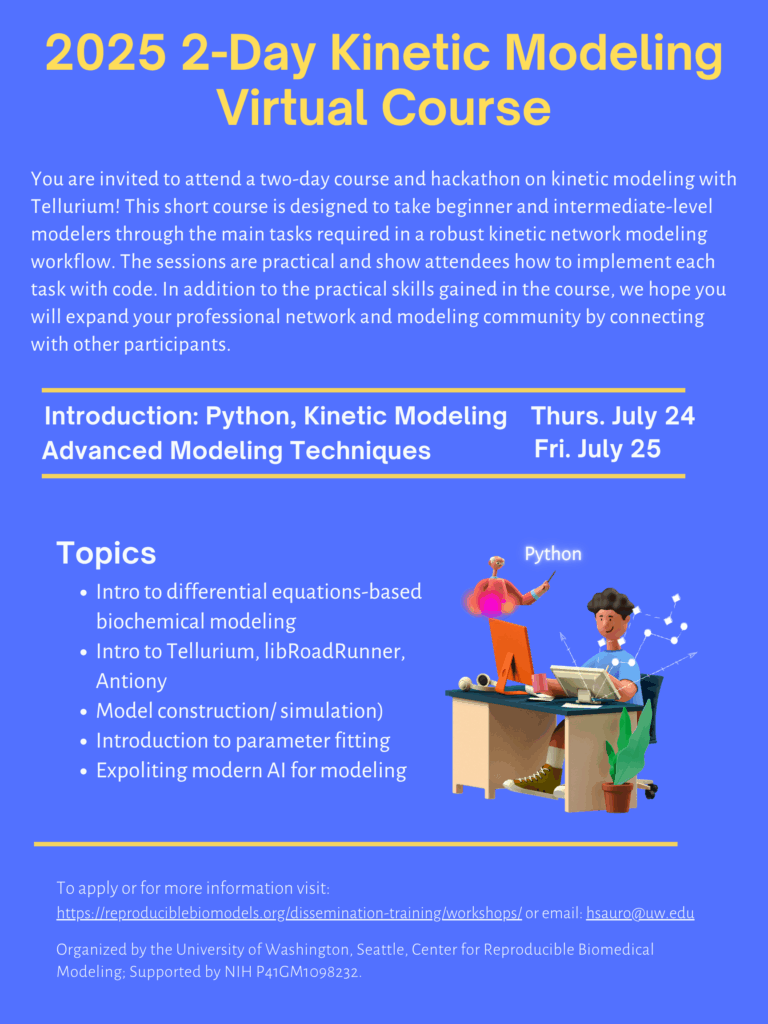The Center for Reproducible Biomedical Modeling develops workshops alone and in collaboration with several academic organizations and conferences in order to disseminate educational material focused on the practical use of modeling software and theoretical explorations of modeling theory. An archive of workshop materials, which includes videos and links to code, data, and model repositories, along with advertisements for upcoming workshops, is maintained below.
2025 Kinetic Modeling Virtual Course & Hackathon
2024 Cell Modeling Online Summer School and Hackathon
2023 Kinetic Modeling Virtual Course & Hackathon
2023 Harmony Conference
2022 Network Modeling & Virtual Summer School
2021 Network Modeling & Virtual Summer School
2020 Network Modeling & Virtual Summer School
2025 2-Day Kinetic Modeling Virtual Course

Click here to download PDF
You are invited to attend a two-day course and hackathon on kinetic modeling with Tellurium! This short course is designed to take beginner and intermediate-level modelers through the main tasks required in a robust kinetic network modeling workflow. The sessions are practical and show attendees how to implement each task with code.
In addition to the practical skills gained in the course, we hope you will expand your professional network and modeling community by connecting with other participants.
You will learn to:
• Write biochemical models using Tellurium and the Antimony modeling language
• Simulate your models with Tellurium and libRoadRunner
• Estimate model parameters
• Perform metabolic control analysis
• Understand case studies from published articles
Time (and timezone) breakdown:
9 AM PDT [11 AM CEST | 12 PM EDT] – 4 PM PDT [6 PM CEST | 7 PM EDT]
For more information, please see our attached flyer or visit: https://reproduciblebiomodels.org/dissemination-training/workshops/
Please share this with colleagues and students you think may be interested!
REGISTRATION:
Please complete the following Zoom registration form:
https://washington.zoom.us/meeting/register/HIIsuuy5QO66ijBhD29pjQ
DEADLINE for REGISTRATION:
July 20th, 2025.
The workshop is partially supported by grants from the US National Institutes of Health. Enrollment is free.
We look forward to welcoming you online this July!

